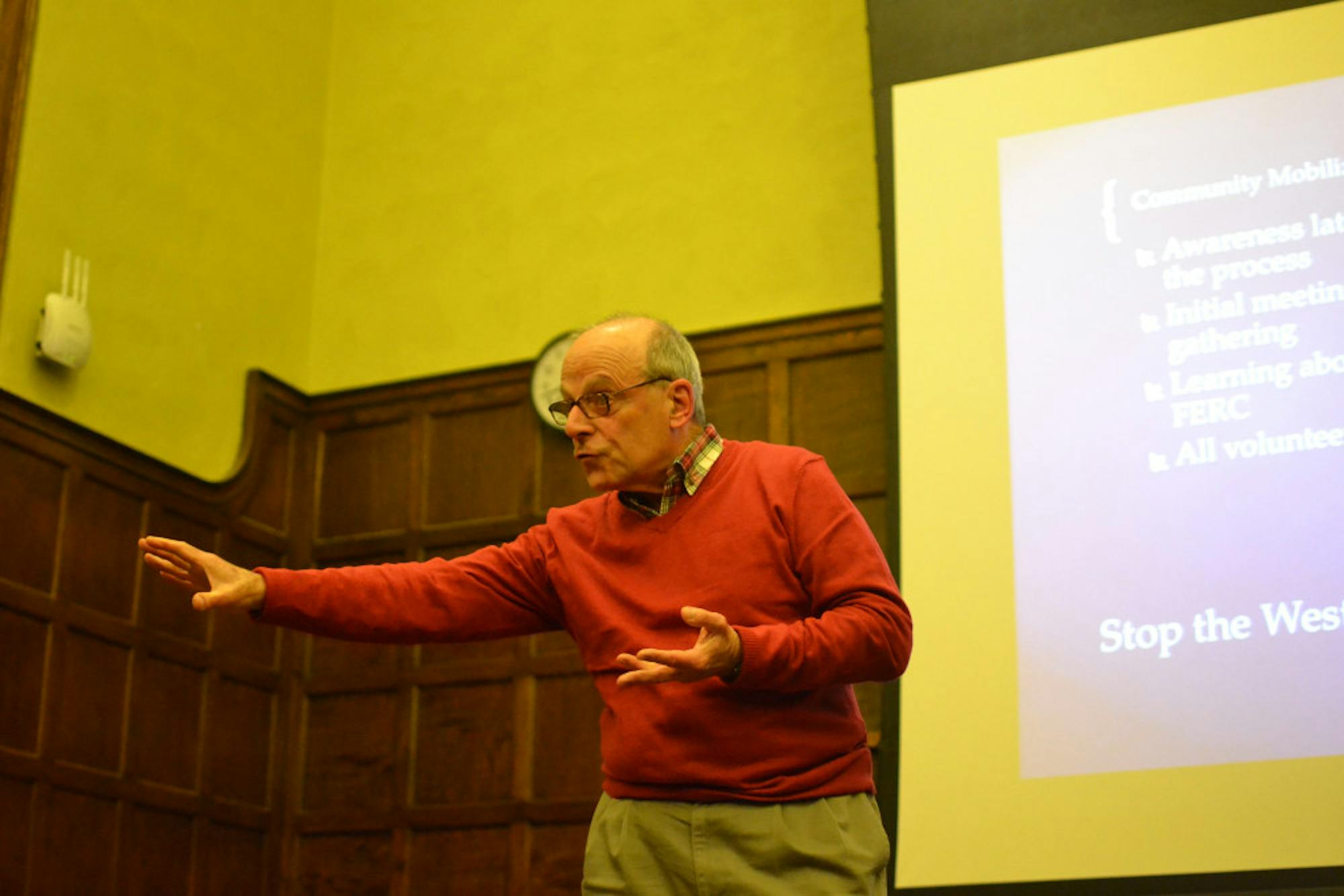Tufts Climate Action (TCA) held its first Reality Week, a series of events focusing on the climate crisis and climate justice, from Nov. 30 to Dec. 4 amid United Nations (UN) climate negotiations between world leaders in Paris.
Reality Week included a panel discussion, a screening of a climate documentary and daily opportunities for people to sign a divestment petition, according to the Facebook event. TCA held its reality week in honor of the 21st annualConference of Parties (COP21) to the UN Framework Convention on Climate Change in Paris, which runs from Nov. 30 to Dec. 11.
TCA member Shana Gallagher said that “even a success is a failure" at the UN conference. She explained that the world leaders at the conference will at most agree upon a two-degree cap on global warming, which would not be binding and would not contain information regarding implementation.
"Even if we do keep the global temperature below two degrees, that in itself will cause catastrophic climate change in ways we can only imagine right now," Gallagher, a junior, said. "Reality Week is about making people on the Tufts campus realize that even if we’re lucky and privileged enough to not be dealing with the effects of climate change right now, it doesn’t mean others aren't and that we won't be feeling these effects soon."
On Dec. 2, TCA held an interactive panel discussion with local members of the Stopping West Roxbury Lateral Pipeline group, a local group dedicated to preventing the West Roxbury pipeline from being built.
Gallagher said it was important for Tufts students to listen to voices in the community in order to realize that climate change is affecting people in the surrounding area as well as people outside of the greater Boston area.
She explained that West Roxbury is a low-income community of color in which Texas-based company Spectra Energy Corps. has proposed extending a pipeline.
"[West Roxbury has] been fighting this for almost two years now," Gallagher said. "It's a really good example of how climate change and fossil fuel companies do affect some low-income neighborhoods and vulnerable populations right next to Tufts that very few people know about. These are the same types of projects that are being funded by Tufts' endowment by investing in fossil fuel companies."
Gallagher said she hopes the “partnership with West Roxbury can be a long term two-way street" since the pipeline group is an example of how public pressure can help stop a fossil fuel project.
Their second large event of the week was a screening of the film "This Changes Everything: Capitalism vs. the Climate," based on a book by Naomi Klein, on Dec. 3, according to the event page. TCA also tabled at campus dining halls throughout the week to gather support for their continued effort to convince the administration to divest from the fossil fuel industry.
According to TCA members Brian McGough and Elizabeth Cultrara, companies in the fossil fuel industry harm both the environment and community health.
“[The fossil fuel industry] is guilty of more than just greenhouse gas emissions," McGough, a junior, and Cultrara, a sophomore, told the Daily in an email. "Irresponsible carbon extraction, refining and combustion directly harms the health and stability of communities near and far."
In late April, 33 students from TCA held a sit-in protest in University President Anthony Monaco's office at Ballou Hall as a part of their efforts to demand the administration divest its endowment from fossil fuel companies. Multiple students received disciplinary probation for their participation in the sit-in, but two students, including Gallagher, successfully appealed for and got decreased probation. This semester, TCA members including McGough and Gallaghermet with administrators and trustees on Oct. 5 to continue discussing fossil fuel divestment. Gallagher and others continued to protest Tufts' fossil fuel investments outside a Nov. 7 Board of Trustees meeting.
Part of TCA's demands and complaints to the administration stemmed from the increase in the amount of funds invested in fossil fuels over the past year, Gallagher said.
According to Gallagher, TCA is planning on hosting a symposium on climate change and fossil fuel divestment in conjunction with the Provost’s Office. The symposium will be a university-wide project involving various facets of the administration, she said.
The symposium resulted from the formation of a working group in the Provost's Office, according to Chairman of the Board of Trustees Peter Dolan.
According to McGough and Cultrara, Reality Week was part of TCA's ongoing campaign for climate justice.
"Climate change is here and now, [which is] a lesson that we've been seeking to learn internally and communicate to the campus," McGough and Cultrara said.
McGough and Cultrara explained TCA's continued plans to advocate for divestment in the coming semester.
“Next semester, we look forward to continuing active dialogue between students, faculty and the administration on the topic of climate justice," the two members said. "Our campaign will continue to press our administration to acknowledge the necessity of going beyond the untenable status quo."
Tufts Climate Action holds Reality Week alongside UN climate change conference

Members of the Stopping West Roxbury Lateral Pipeline group speak to a group of Tufts students about how to get involved in the movement against natural gas as a part of Reality Week hosted by the Tufts Climate Action on Dec. 2.





